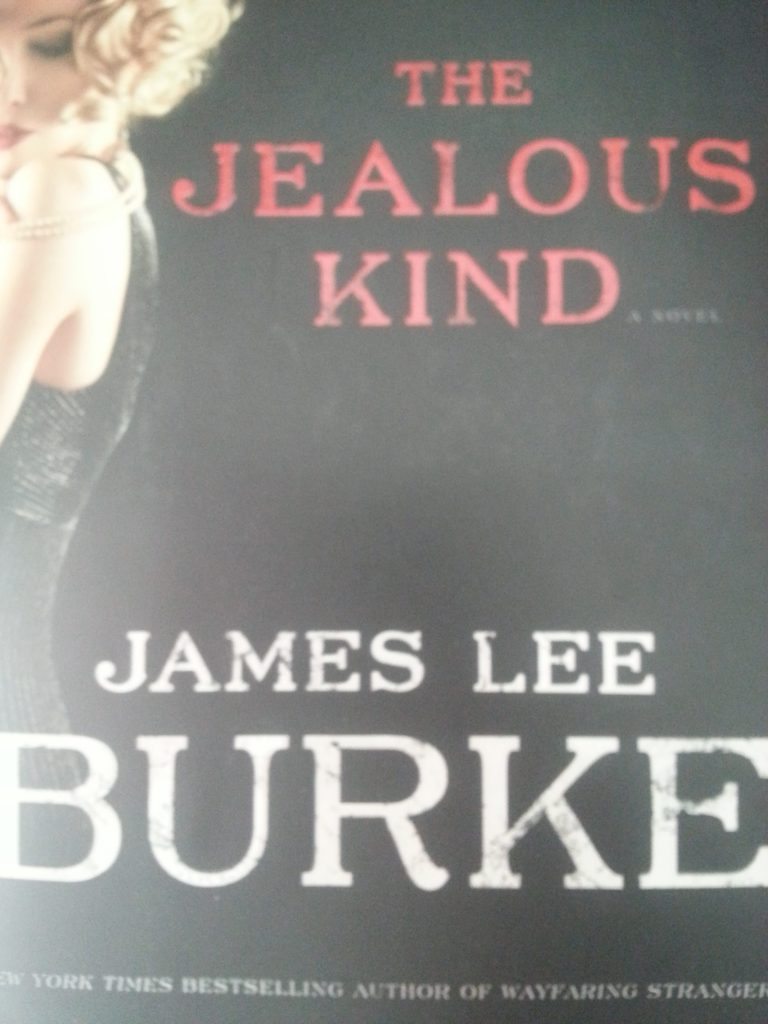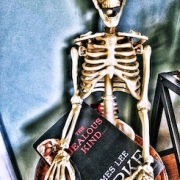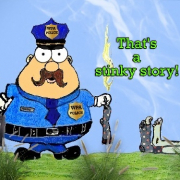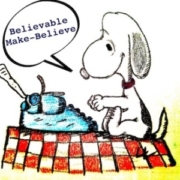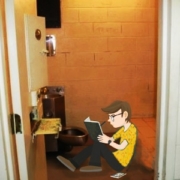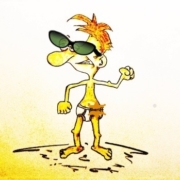Details: The Heartbeat of a Good Book
I have many fond memories of my days as in law enforcement. Sure, there were bad times and I still bear those scars, both physical and mental, but all things considered I value and cherish the experience. After all, I have a built-in resource library that’s practically unending, and part of that vast lump of knowledge includes interacting with people from all walks of life.
I’ve had the pleasure of meeting celebrities and I’ve had the unique opportunity to sit mere feet from a notorious serial killer when the “switch” was pulled to end his life. I’ve met wonderfully nice people and I’ve dealt with some of the worst of the worst. I can honestly say that I’ve been punched, bitten, stabbed, and shot at by some of the best worst in the business.
But pushing aside all of the “bad” cop stuff, I’d like to call attention to plain old human interaction and the differences in our cultures, and how those backgrounds can sometimes affect police officers during their daily duties. These are also details that can go a long way toward bringing that extra bit of realism to your stories in progress.
Such as …
Imagine for a second that you’re a deputy sheriff whose patrol area covers a vast portion of real estate that’s so deep into the countryside that sunshine is delivered each day by horse and wagon. Trips to the grocery store roll around only once or maybe twice each month. These are the places where residents keep their “deep freezes” filled with vegetables from their gardens and home-butchered meat from freshly-killed hogs, deer, and squirrels.
Back in the day, not everyone in these areas had a telephone. Keep in mind, this was pre-cellphone and that meant party lines were still in use, as well as some people having to go to the nearest county store or phone-owning neighbor’s house to make or receive a call. Even then, those precious calls were mostly reserved for emergency use only.
It was during those days—pre-cellphone and pre-GPS—when deputies had to rely on obtaining directions from local residents when they weren’t sure of a particular address. Houses were often set so far from the road we couldn’t see house numbers, if there were any to see. 911 had not come into play. And, well, you get the idea. Cops were on their own when it came to finding someone’s house.
So, we’d often stop the first person we saw to ask for directions. Or, we’d stop in at the country store to ask the overall-wearing guys who sat around a warm potbelly stove chewing tobacco, discussing crops and livestock, and gossiping about so-and-so getting a new tractor or truck, and who’d killed the biggest deer.
This is what we’d sometimes hear in response to our inquiries.
Me to the checker-playing, work-booted group: “Do you by any chance know Joe Imacrook? He’s somewhere around five-feet tall and weighs in the neighborhood of four-hundred pounds. Thick beard and missing one front tooth. His wife’s name, I believe, is Hattie Sue.”
The men look up from their games, glance at one another, and then the loudest, most vocal of the crew said, “We might. Why’re you asking?”
Me: “He killed a man last night. Shot him twice in the forehead and then took the victim’s cash, car, and his shoes.”
Crew leader: “Did the guy need killing?”
Laughter erupts from his buddies.
Me: “The guy he murdered had just left church and was on his way home to his pregnant wife and two small children. He killed him for no reason other than to rob him.”
The laughter shut down as if someone flipped a switch. These folks were serious their women and children.
Crew leader: “Yeah, we know him. He lives down the road a piece.”
A second man spoke up. “I always thought old Joe was a few pickles shy of a full jar. Told the missus so, too.”
Crew leader leaned back in his chair and ran a hand across the patch of scraggly, bristled whiskers dotting his cheeks, chin, and neck. “Here what you do,” he said. “Go back out to the crossroads and take a left. Then go on about, oh a mile or so and then keep goin’ till you pass Robert Junior’s old horse barn. Then you hang a sharp right at the big oak tree. You can’t miss it ’cause it’s got a big old hornets’ nest a-hanging from one of the bottom branches. When you see the tree, the one with the hornets’ nest, keep on a goin’ til you see a red mailbox. That ain’t Joe’s mailbox, but you’re close. He’s just past where John Henry Thomas used to have a store. It burned down 37-years ago next week, but they’s a big rock there with some yaller paint on it. Yaller was John Henry’s favorite color so his wife, Etta Jean—she’s Romey and Winonna Jenkins’ oldest daughter—painted the rock so’s everybody’d remember him and the store. You know, John Henry sold the best cheese, bologna, and peaches this side of Atlanta.
Anyways, if you get to where the road splits into a “Y” you’ve done gone too far, so turn around in Mable Johnson’s driveway and head back the way you come. Old Joe’s house is the blue one a’settin’ off the road about two-hundred yards. The one with the goats and chickens running ’round the place. You can’t miss it. Oh, whatever you do, blow the horn three times when you drive up so he’ll know you’re okay, not some of those pesky Joe Ho’vers Witnessers. I ‘spect he’ll come on out peaceful.”
This bit of dialog may sound a bit overwritten, however, it’s a fair representation of what I’ve encountered on more than one occasion throughout the years. Anyway, the point I’m so poorly trying to communicate is that no detail is too small to store in your memory banks. You never know when those intricate pieces of information are the things needed to take your work to the next level.
James Lee Burke, one of my all time favorite writers, is a master of detail and he often utilizes simple things to enhance his stories. To open the cover of one of Burke’s books is to release the scents of swamp water and crab boils. The smell of meat cooking on open fires greets you warmly as you turn the pages.
In short, Burke makes us feel the words he’s written.
For example, here’s a brief passage from The Jealous Kind, one of his recent books.
“I drove her into the same neighborhood where I bought the switchblade knife. It was Sunday morning, and a few people were on the streets. A blind woman of color was playing bottleneck guitar under s canopy in front of a liquor store.”
In three short sentences Burke takes us by the hand to guide us through this neighborhood. I see the blind woman sitting in the shade of well-weathered canvas awning. I hear the twangy sounds she makes while pushing and pulling a metal slide across the steel strings of her guitar. I hear the notes faintly echo from the sides of brick and glass storefronts. I picture her seated on an overturned plastic milk crate, wearing layers of tattered clothing. In the windows behind and beside her, a few tubular neon lights advertise beer and cigarettes.
Burke’s words show me people strolling along sidewalks littered with faded, discarded lottery tickets and scraps of fast food wrappers. Both men and women avoid making eye contact with anyone. They’re going nowhere particular, just going. The fact that the character purchased a switchblade there indicates it’s a dangerous area, especially after the sun slips behind the skyline.
It’s quite possible that Burke visited this place at some point in his life, and at the time he needed the information he pulled it from that place in his mind where he stores such vivid detail. And this spot, a place we all have inside our minds, is where the dialog I posted remained in limbo until I dug it up.
So yes, details, even the tiniest of them all, can be used to bring life to an otherwise unremarkable three sentences. Imagine if Burke had written the passage without detail.
I drove her through a place I’d been before, where I once bought a knife. We saw some people, including an old blind woman. She was playing a guitar.
See what I mean? Same information, but absolutely no life.
So yes, details. Look for them. Store them. Write them. They are the heartbeat of a good book.


